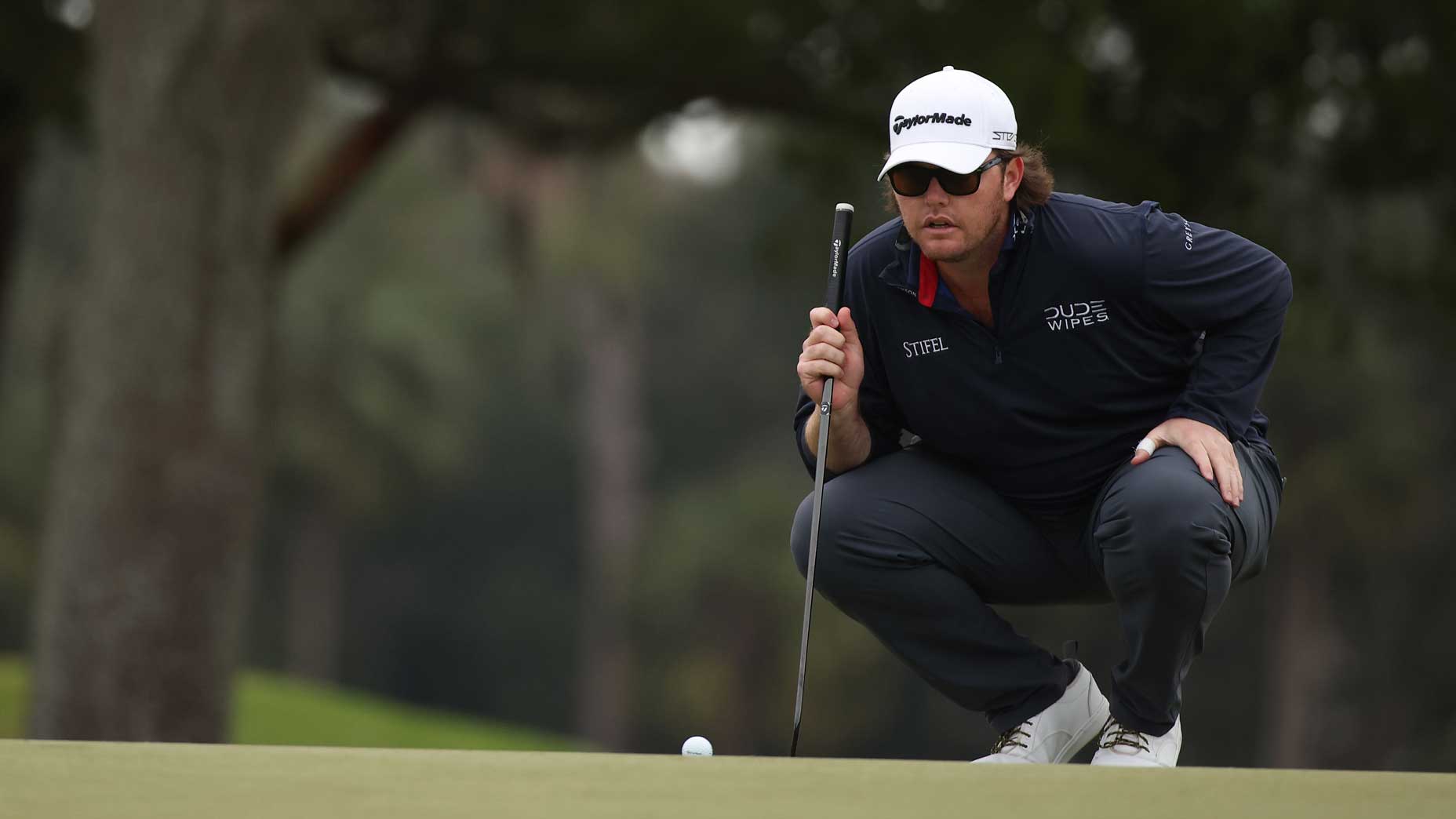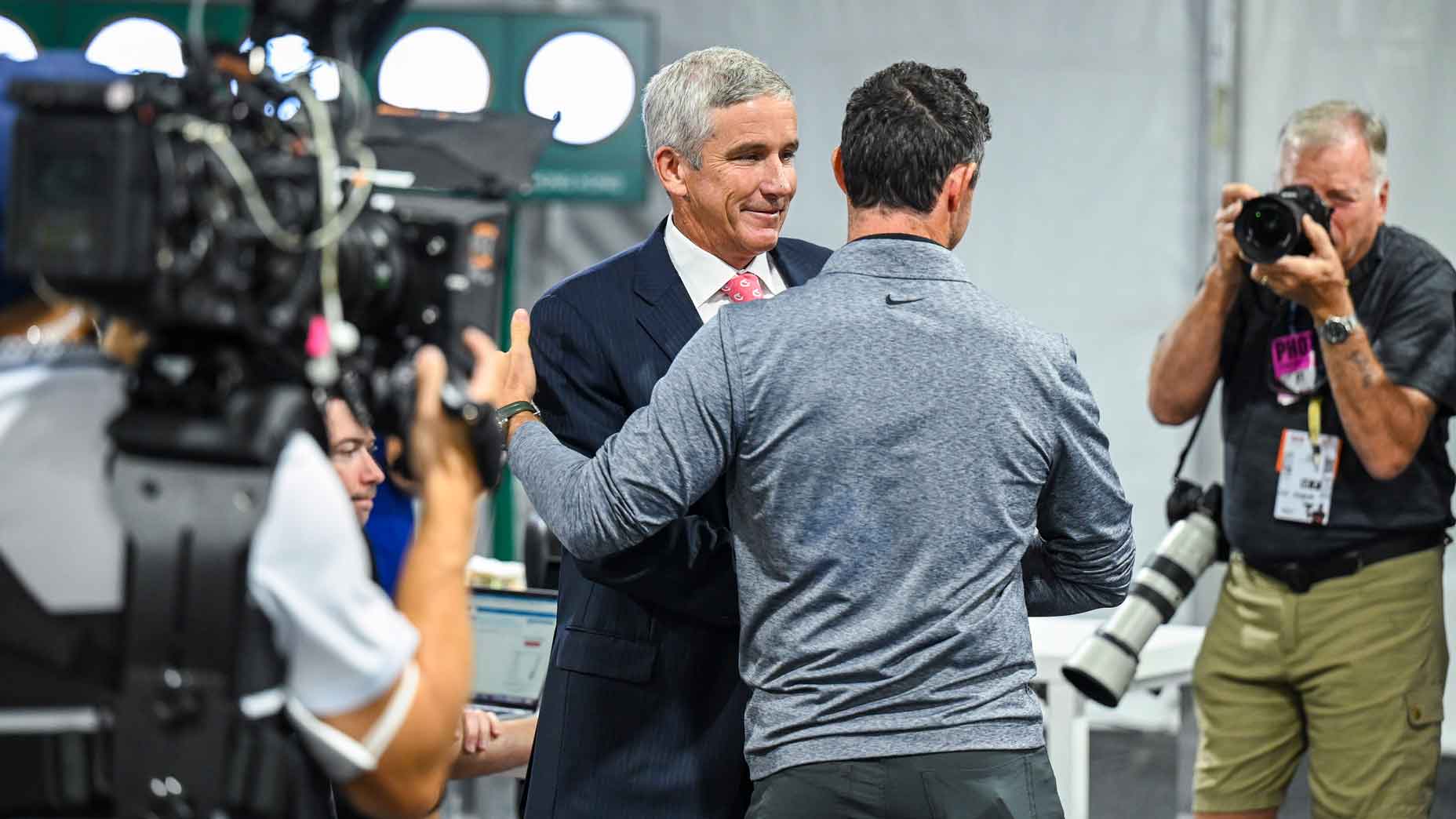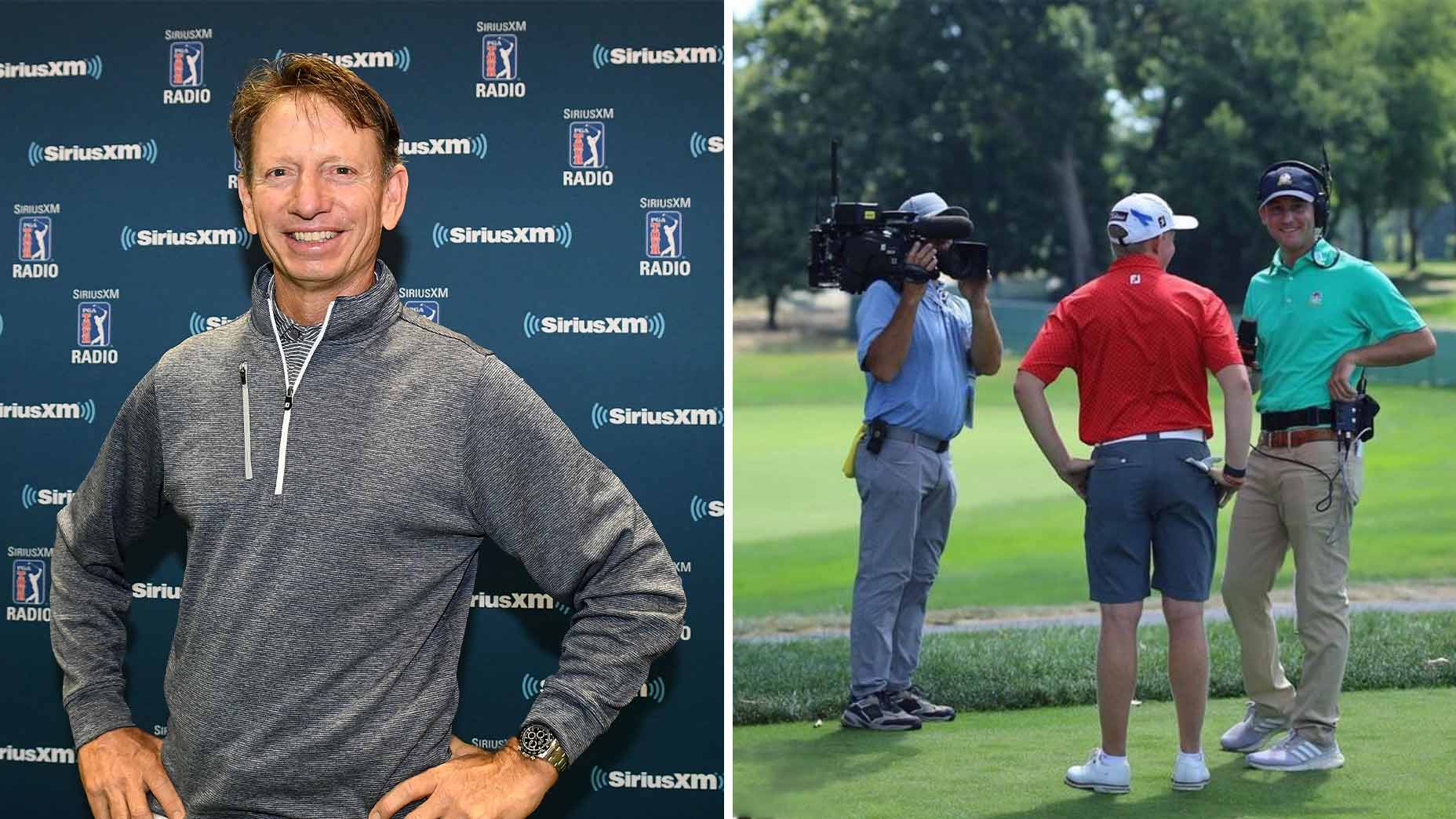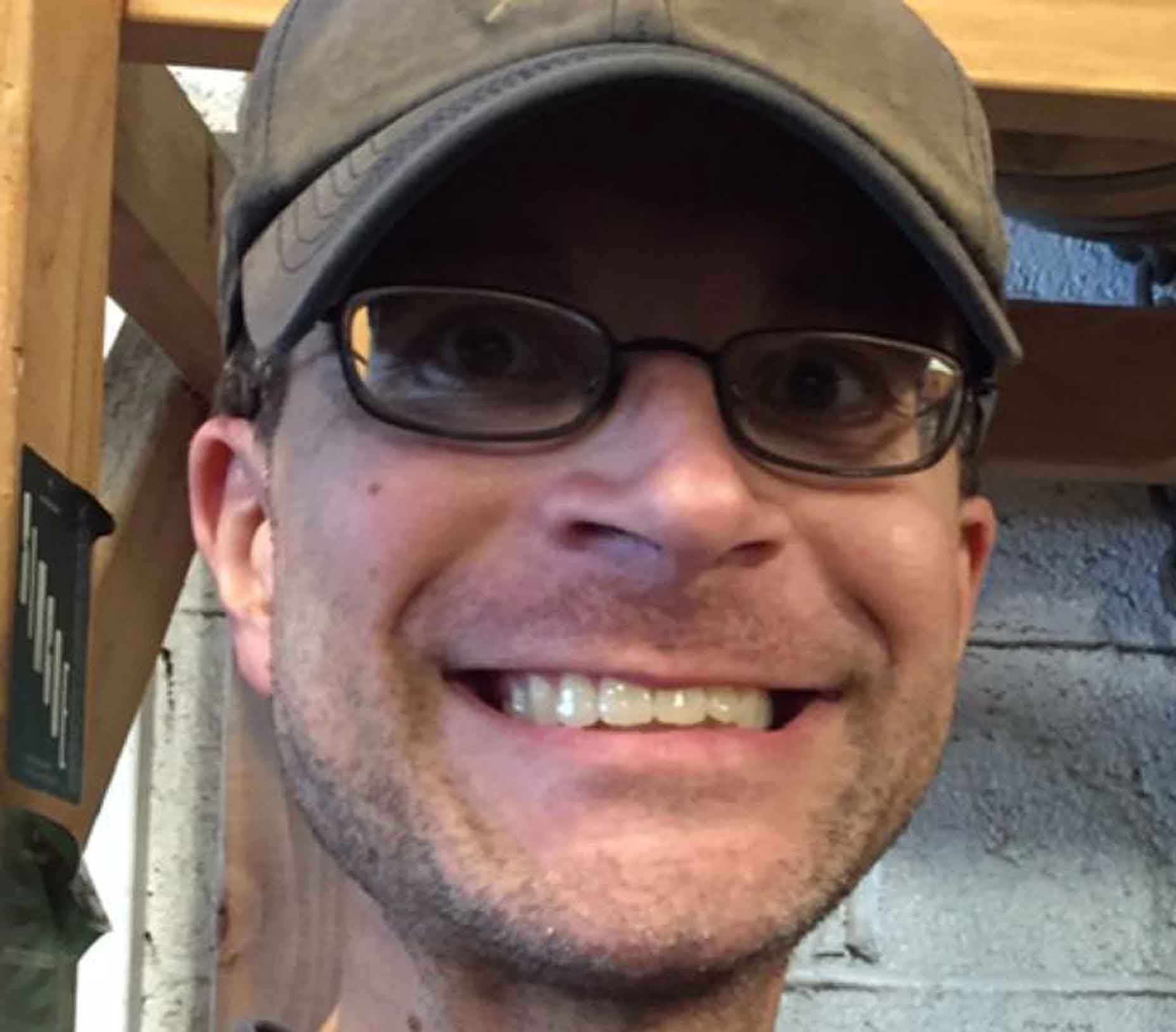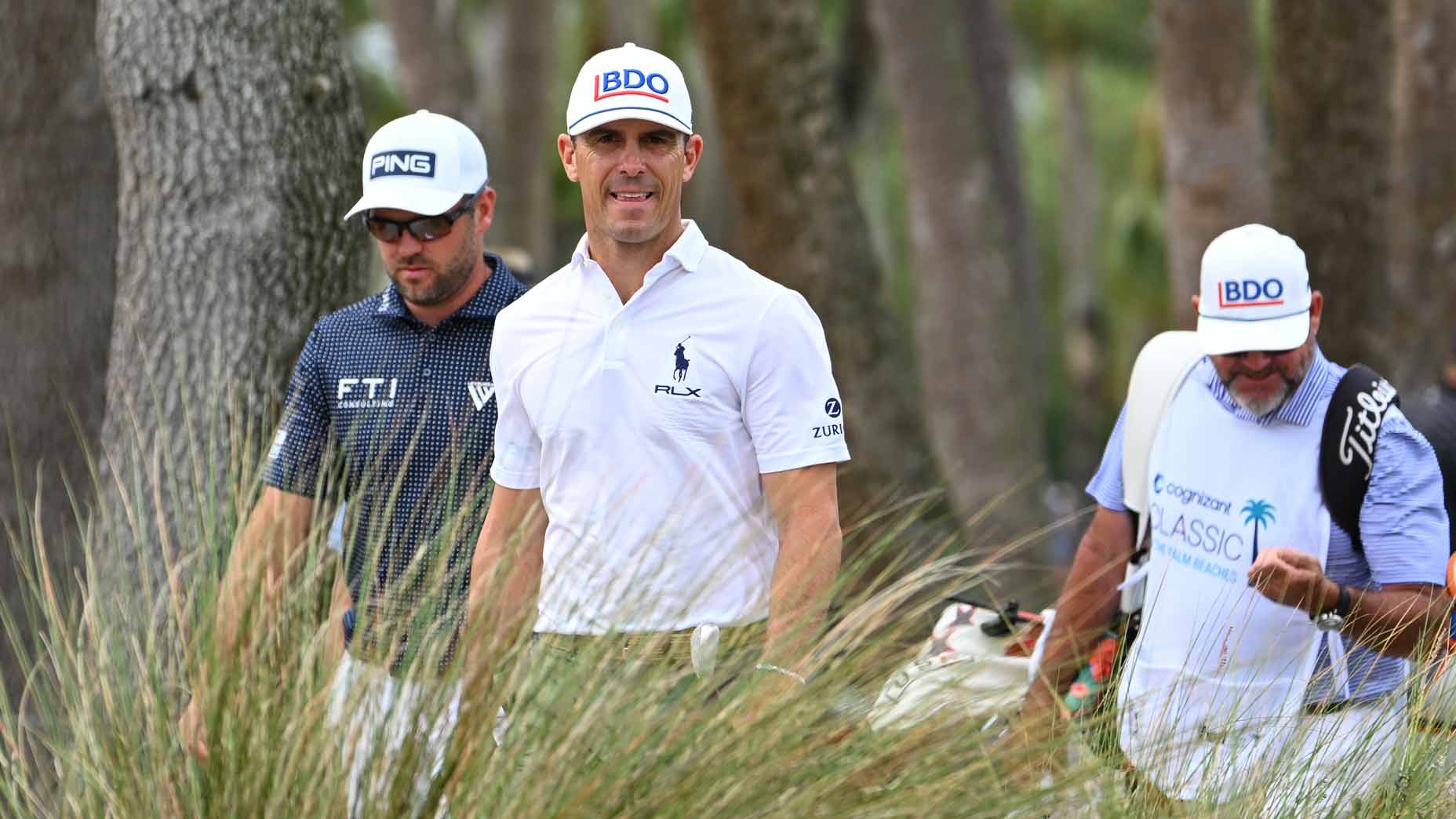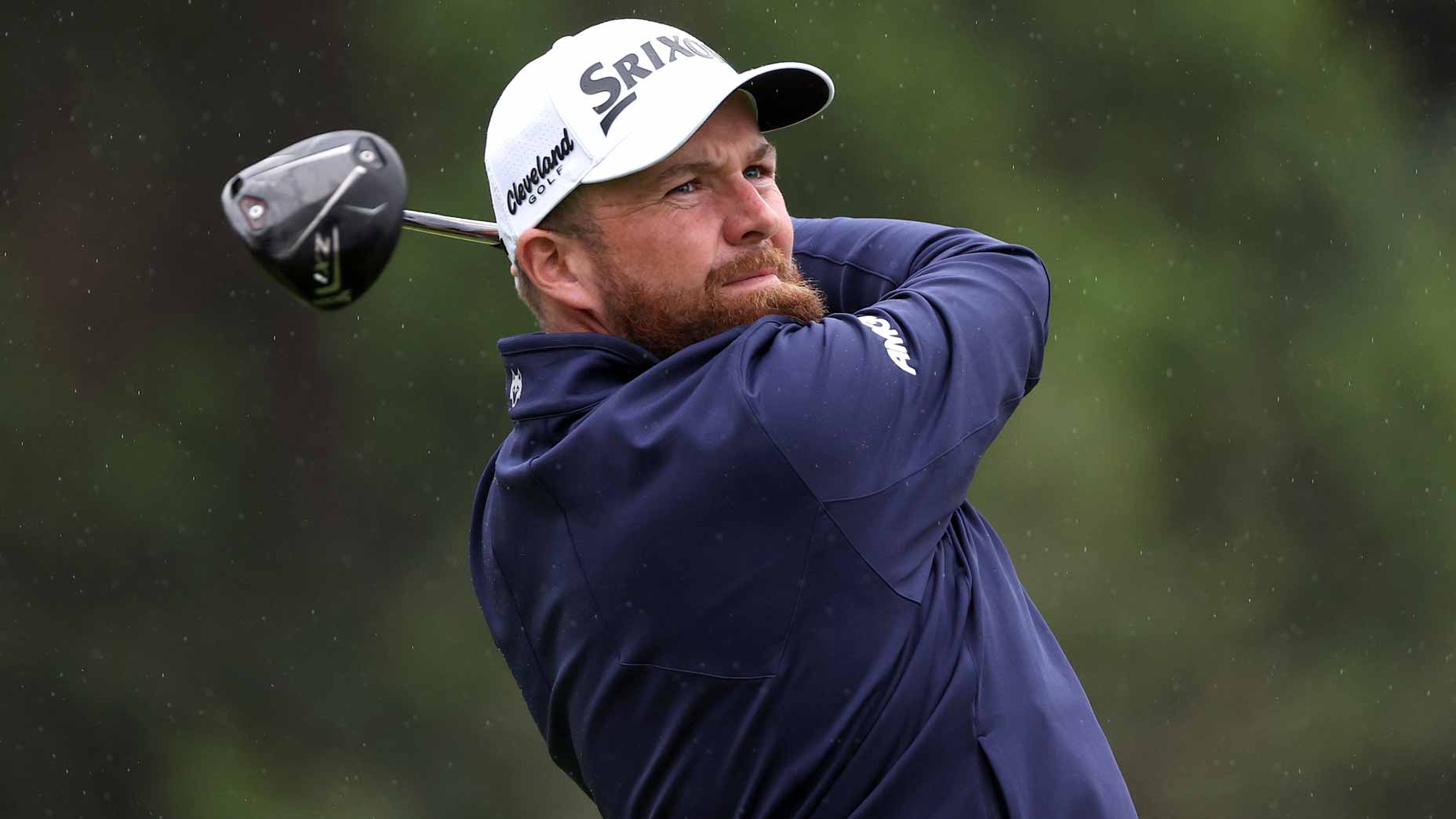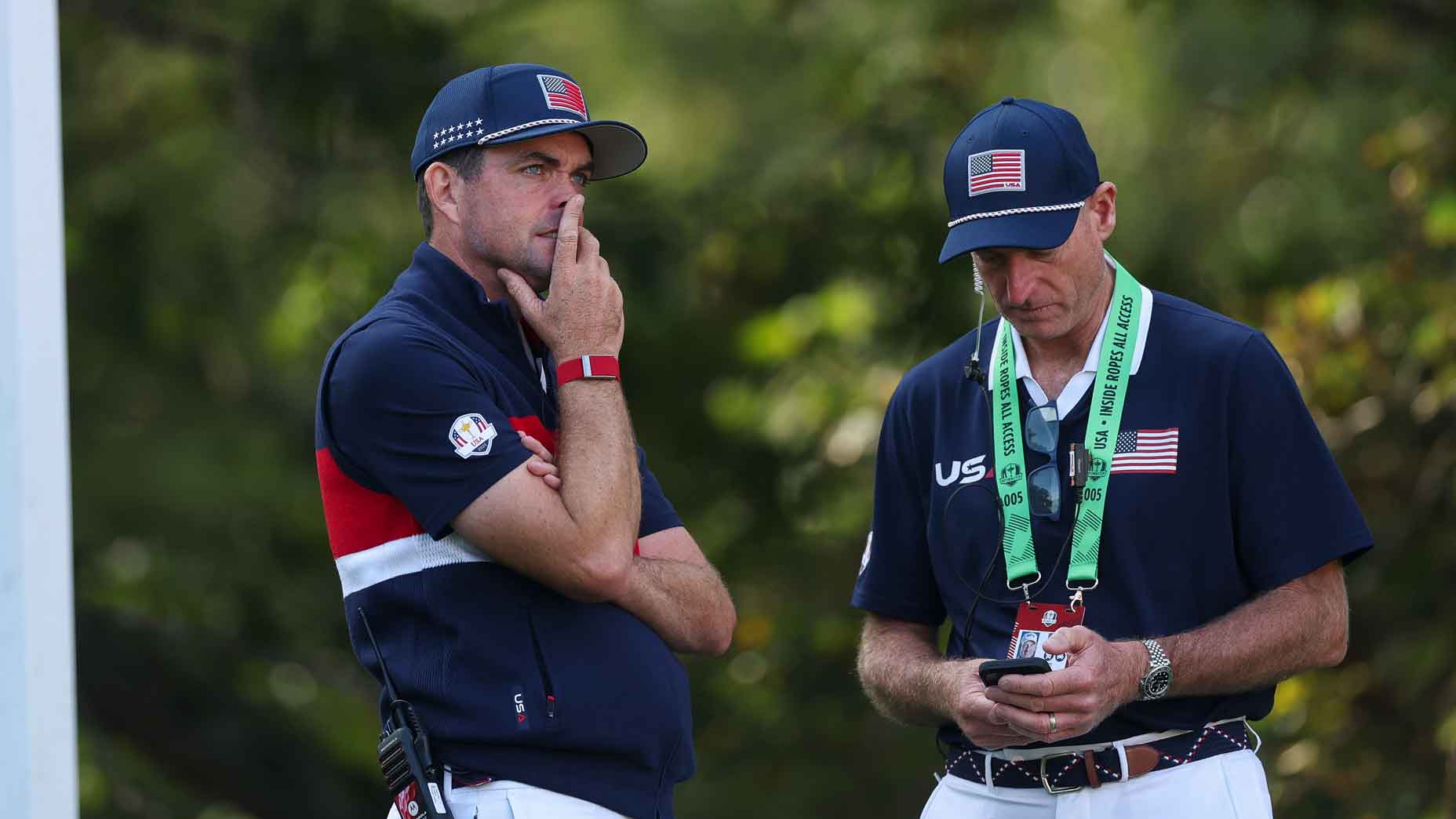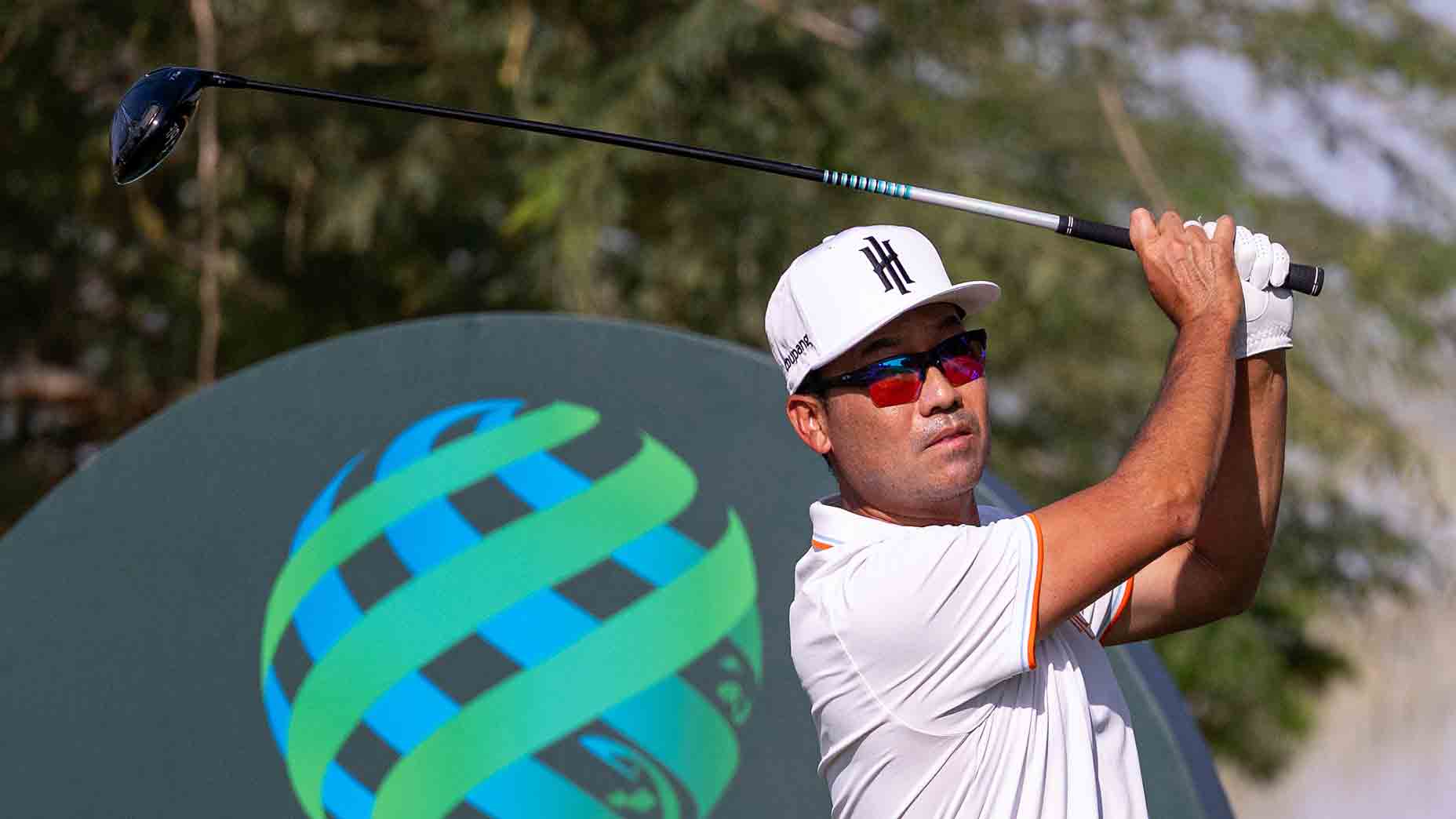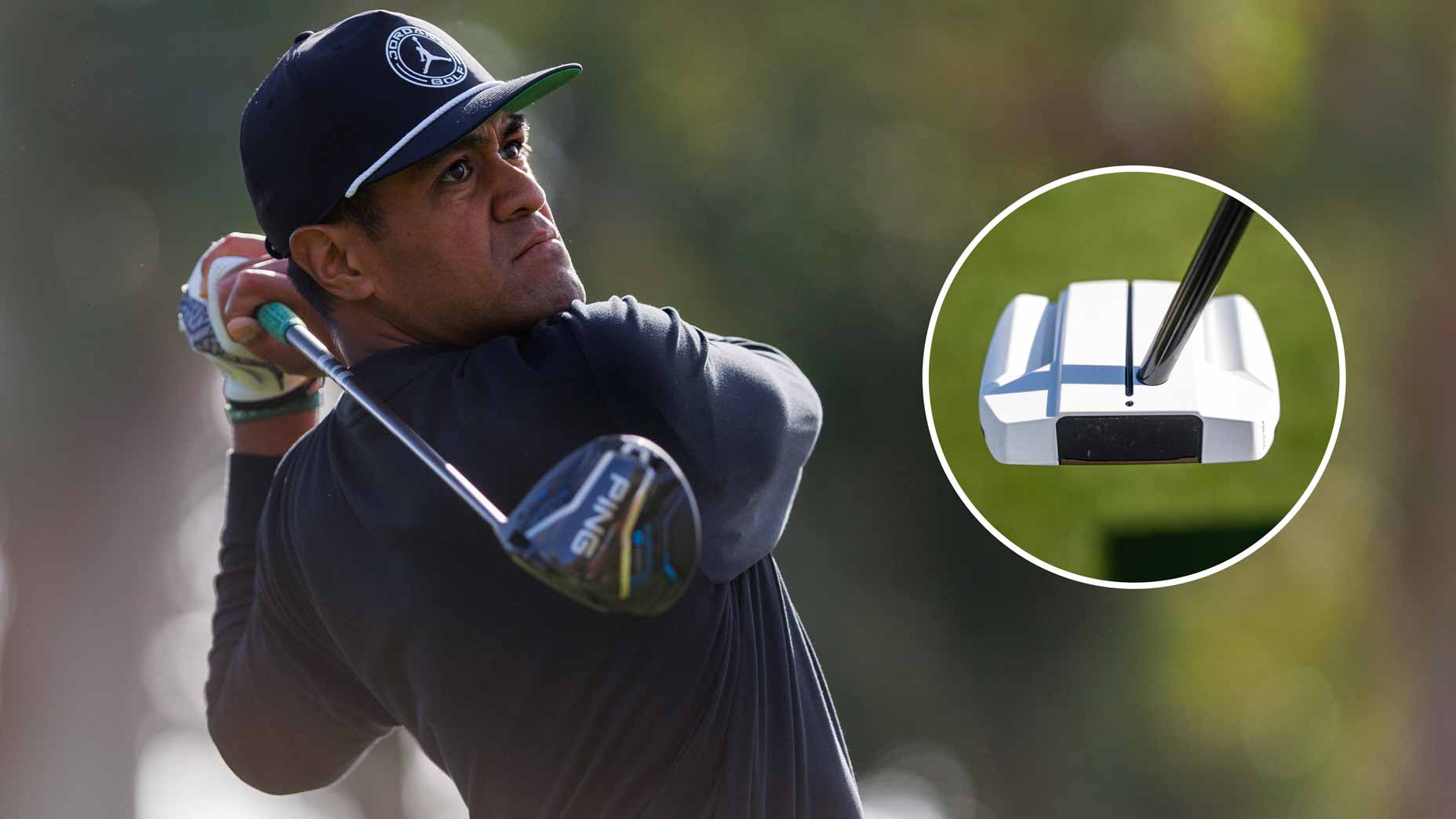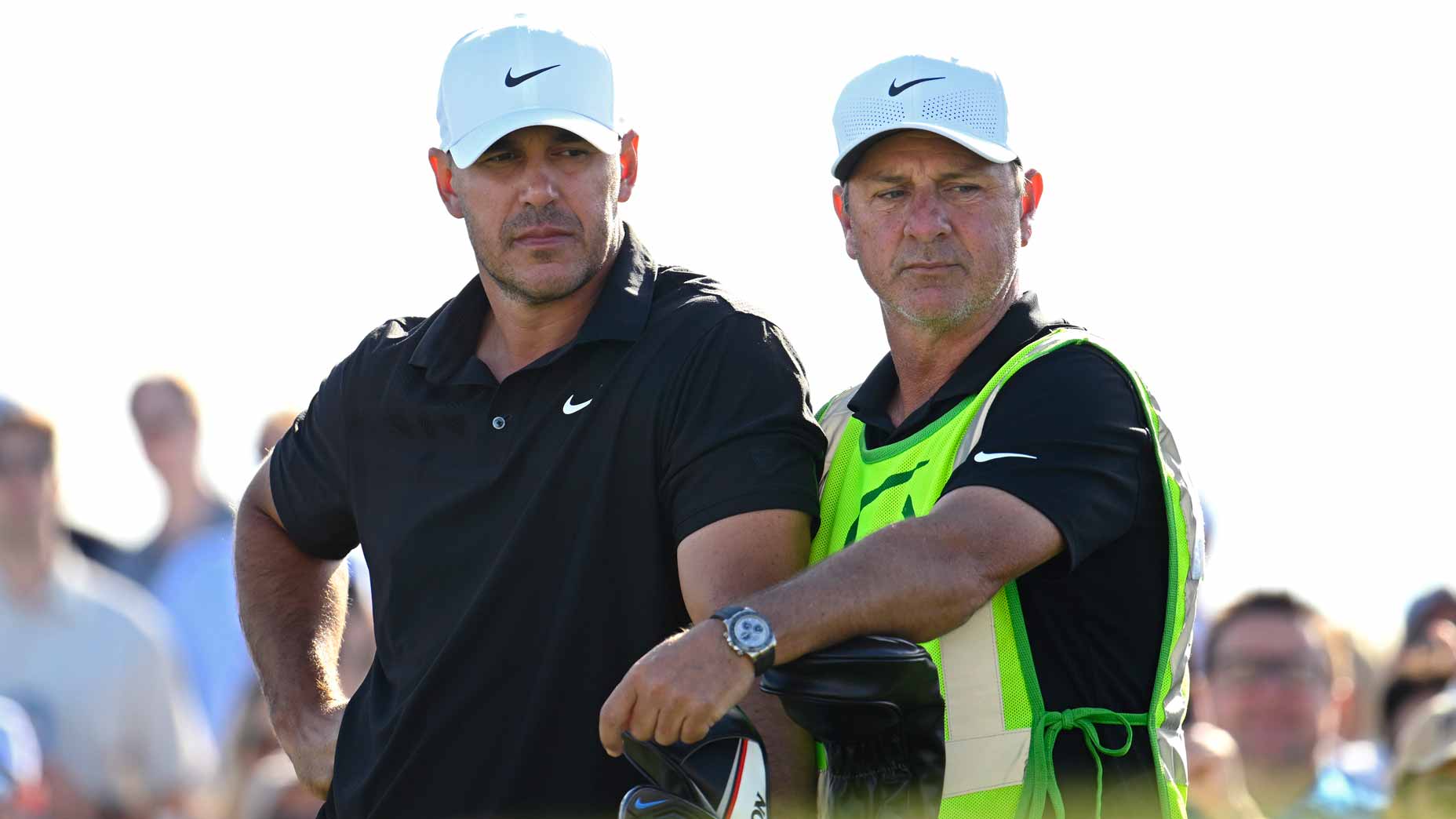Harry Higgs, one of the PGA Tour’s more popular players, is concerned over recent moves made by the tour in its fight against LIV Golf, describing a scenario where “there is no way that there is anything other than a 20-event PGA Tour schedule starting probably year 2031.”
Over an hour-plus-long appearance last week on the No Laying Up podcast — which you can listen to in full here — Higgs also had worries over whether the Tour and its broadcast partners can tell “the right stories often enough and in a way in which will continue to generate revenue.”
“I think the Tour is doing a better job,” he said. “I think our broadcast partners do an absolute s**t job of doing it.”
Higgs’ comments came on the heels of a host of changes made by the Tour and go in effect next month. In short, 20 players will be defined as “top players;” the device in which the Tour will define those players will be the Player Impact Program, and it will receive a $100 million purse to reward those players; and the 20 players will play in 12 so-called “elevated events” — with purses that have increased to between $15 million and $20 million — the four majors, the Players Championship and three other tournaments, for a 20-event schedule.
It’s the latter changes that are raising some questions with Higgs. If the elevated events “hit,” he said on the podcast, all is well. Higgs then dove into what he thought if they didn’t.
It came in response to a question by podcast host Chris Solomon on what Higgs meant by ‘hitting.’
“Basically those events need to generate a s**t ton of revenue to offset the cost of pumping money into purses, pumping money into bonuses,” said Higgs, who last season lost his Tour card, but will still play in some events. “If those events generate a ton of revenue, more than what we are putting into every pool, with purses, bonuses, all this stuff, all the money that is being shelled out, then we’re cool, we’re fine. We’re going to be just great. Every event is going to continue to run.”
And if they don’t ‘hit?’ Higgs believed the Tour would consolidate its money into just the aforementioned 20 events.
‘What it’s done is made the PGA Tour almost two tiers’: Jack Nicklaus questions TourBy: Nick Piastowski
“If they don’t generate the revenue we think, or we’re hoping, then there is no way that there is anything other than a 20-event PGA Tour schedule starting probably year 2031,” he said on the podcast. “And then the rest of the events kind of, I would imagine, mix in with European Tour and Korn Ferry Tour, and there’s some kind of hybrid tour that’s just underneath that that feeds X amount of players into the big tour every year. And whatever number that may be, who knows.”
Still, Higgs believed the Tour needed to adjust. The moves have come in a rapid response to Saudi-backed LIV Golf, who has signed multiple Tour players to guaranteed-money contracts, and this year played eight events, all with no cuts, 48-player fields and $20 million purses.
For the Tour’s part, their commissioner, Jay Monahan, explained the additional funding for the changes this way, back when they were announced in full in late August:
“The money comes from three sources,” he said. “One, I would say for 2020, this year that we’re in, the Tour is having its strongest year in the history of the PGA Tour and is performing well ahead of budget.
How is PGA Tour finding more money to fight LIV? Jay Monahan gave an idea.By: Nick Piastowski
“Secondly, as you’ve heard me talk about before, the Tour through the years has been very prudent in managing its finances and building reserves and being in a position to be able to invest in programs that are going to help the Tour grow. That’s what they’re there for, and that’s what we’ll continue to use them for.
“I would say additionally, our partners, our sponsors and all of our partners who want to get behind and are getting behind the direction that we’re going in, want to be a part of the continued growth and evolution of the Tour. They recognize that with the changes we’re talking about today, the changes that we’ve made prior to today, and the direction we’re heading in, we’re going to be creating more value.
“When you create more value, you’re going to get more income coming into the business.”
There’s a lot to unpack there. In reference to the strong year, a large chunk of the money has likely come from the Tour’s new media rights deals, which went into effect on Jan. 1 and are worth billions through the end of the decade. The reserves, meanwhile, were not directly addressed, but they were in March; at the Players Championship, Monahan said that account was at $225 million, down from $300 million prior to the pandemic.
Monahan’s third point — the partners and sponsors — is notable. What those conversations were like is unknown, but they’ll help fund nonetheless. For now.
But back to ‘hitting.’ On the podcast, Higgs believed it was more than on the players to do so.
And he went into a critique on golf broadcasts.
Report: NBC Golf makes broadcast additions to replace long-time voicesBy: James Colgan
“I want to be kind in the way that I say this because I have played on Tour for now this is my fourth year, I see the amount of work that goes into showing us play golf, and it is ridiculous,” Higgs said on the podcast. “And I really, really appreciate all the work that they all go through to do that. But at the end of the day, they do a s**t, s**t job of telling the story of what’s going on.
“So if we got a … elevated schedule and the lesser ones are not elevated, but if you play good golf in those, you can get into the elevated ones, that’s awesome. That’s something I’m sure you would watch, I’m sure almost every listener would love to watch and follow along. But they make it too f***ing hard to follow along. I don’t trust them to tell the story the way that it should be. I cannot wait to watch — I hope I’m not playing in it — I cannot wait to watch Q School next year. To just see the difference in like the top five guys — the top five finishers get to the PGA Tour. That adds a zero to every check that they make for the next year. It’s a f***ing zero. It adds a zero. And I don’t trust any of them to portray to me in the appropriate way to captivate me to stay and watch for four days. I just don’t trust them to tell the story the way that it should be.
“And I think they have a lot of great people that can, they just don’t do it, or maybe they don’t have enough time, I don’t know.”
Higgs then offered specific suggestions.
“Well, it’s like, I didn’t particularly care to turn on my TV and listen to Nick Faldo,” he said on the podcast. [Faldo, CBS’ main analyst, retired from broadcasting this and has been replaced by Trevor Immelman.] “I don’t really know him that well. I’m sure he’s a decent guy. I didn’t particularly care. The reason I didn’t particularly care is I never saw the man. Like, he’s there Wednesday to Sunday. Just come out on the driving range. Now whether people talk to you or not, who knows. But listen to what’s going on. Trevor Immelman is taking his place — I see the man everywhere.”
“Everywhere, yep,” Solomon said.
“Everywhere. I think he’s going to do a great job,” Higgs said. “Colt [Knost, a CBS analyst], obviously he’s easy. Colt is everywhere. And Colt has the relationship with a lot of the current top-level guys. And even some of the not-so top-level guys. He has a relationship with them. It’s going to be easy for him to tell the story.
“Now when it comes to n**-cutting time and the story needs to be told, everybody needs to stop talking and let Colt talk. Because he’s the one that has the story. Just stop. Just stop talking. We’re going to listen to Colt for an hour, for the end, because Harry is about to win, and Colt knows him really well. Or whomever it may be.
“Any time one of those Presidents Cup guys from the International team is about to win this next year, Immelman should be the only one talking for an hour. Because he has all the detail. He spent two years cultivating relationships with those guys. And then a very, very spirited week with them. He knows those guys. Everybody stop talking. Let’s listen to Trevor.”
